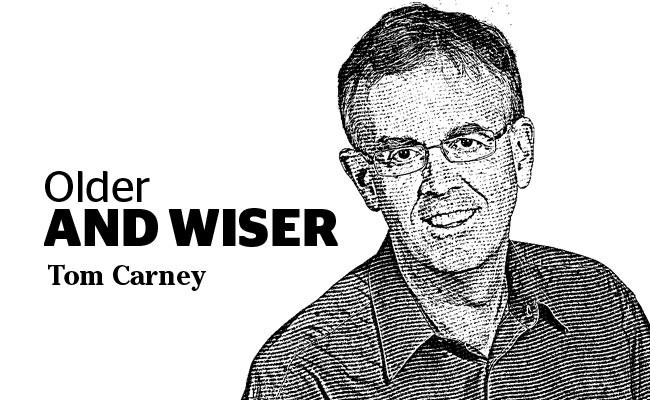A reader asks, "What does the latest research tell us about seniors and prescription medications?" Spoiler alert: overmedication ("polypharmacy") in the elderly is a problem.
The B.C. Seniors Advocate has raised the alarm recently about the inappropriate use of antipsychotic drugs in long-term care facilities. Seniors in long-term care take twice as many drugs as other elderly Canadians but it's not just seniors in care who are overmedicated.
In 2012 approximately twothirds of seniors submitted claims for five or more drug classes and 27 per cent had 10 or more, according to the Canadian Institute for Health Information. Taking more drugs increases the risk for drug interaction, mix-ups and the potential for side effects.
Getting the right medications to the right seniors in the right amounts is an ongoing challenge. The good news is that we are about to get some help with that.
The Canadian Deprescribing Network (CaDeN) is a new national group of health professionals, researchers and patients that is working to reduce unnecessary or harmful prescription drug use, particularly by seniors. They want to wean seniors off inappropriate drugs.
One of the first tasks of the group is to develop a plan for improving prescribing for the elderly in Canada. There are numerous guidelines that tell physicians when it's appropriate to start a drug but not when it might be appropriate to stop. The result is that when drugs are commenced they are rarely ceased.
There is ample evidence that links unnecessary drug prescribing in the elderly to adverse events, poor physical function, hospitalizations and increased costs and deaths.
Overmedication can lead to poorer health outcomes. I get that. The question is can most medications be stopped safely? I found studies that demonstrate that it is safe to withdraw psychotic medication in nursing home patients, that stopping anti-psychotic medication in the elderly with Alzheimer's' disease lowered the risk of death and that stopping fall-risk medications reduced the incidence of falls.
Indeed, simply getting a geriatrician to review the medications has been shown to reduce unnecessary medication and adverse events. The CaDeN has focused their initial efforts on three other classes of medications: benzodiazepines, a sedative for insomnia, proton pump inhibitors, used to treat heartburn and ulcers, and some long acting oral diabetes drugs.
A review of medicine withdrawal studies in older people in Australia found that withdrawal was rarely associated with adverse effects, except for some heart medications.
Let's be clear here: I'm not an anti-drug crusader. Appropriate medications can help seniors live longer and more active lives and some seniors will always require one or more medications.
Deprescribing medication, if and when appropriate, isn't something you should try at home by yourself - it should always be done under the supervision of a physician.
The CaDeN wants to cut inappropriate prescriptions for seniors by 50 per cent by 2020. Is that achievable? In my opinion probably not but any measure of success here would be welcome. If you are a senior on the medication train and you want to get off, it's comforting to know that the CaDeN is on your side
Tom Carney is the former executive director of the Lionsview Seniors' Planning Society. Ideas for future columns are welcome. He can be reached via email at [email protected].
What are your thoughts? Send us a letter via email by clicking here or post a comment below.



